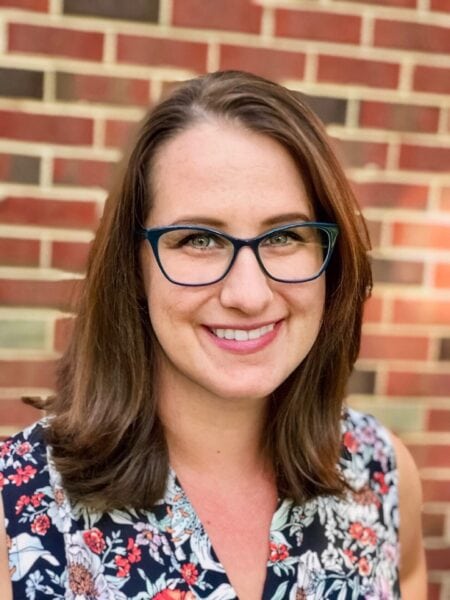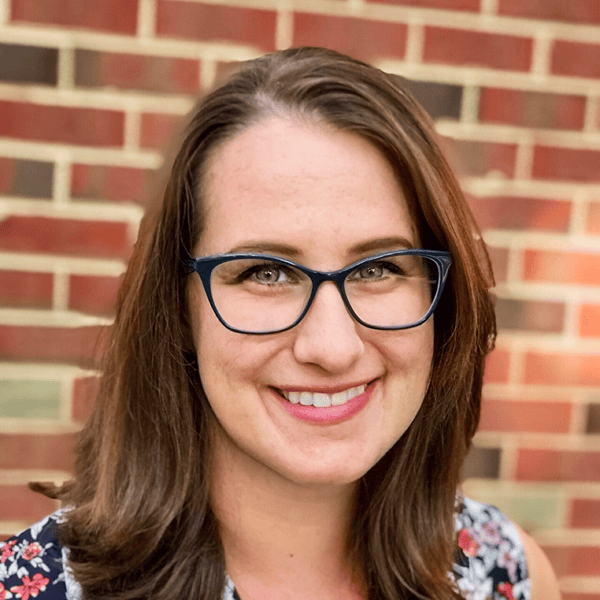
Sarah Weicksel
“Heckofa time to get the job,” a fellow historian and former student wrote me recently regarding my new job as executive director of the AHA. I’ve heard many iterations of this from colleagues since my appointment was announced in February—that I’m starting this job in a tumultuous time, a difficult and momentous time, perilous times. It is, indeed, quite a time to be a historian.
History—from what is being taught to what is printed on historic markers to whose history is told—is a major flash point in American politics and culture. At stake is the ability of not only historians but also the public to talk about the past in all its complexity, complete with messy narratives and its many twists and turns. At stake is the ability to teach and learn about and commemorate the histories of all people and events, not just those that conveniently fit a more triumphalist narrative of the American past.
These tensions over history and memory make the simultaneous hostility toward higher education all the more intensely felt by our colleagues who teach in colleges and universities. Many are experiencing the effects of declining investment in our discipline. In my conversations over the past month, colleagues have discussed a department’s pause on PhD admissions, the threatened elimination of a history program, and reduced funding for research and travel. I met with some of our earliest career colleagues, MA and PhD students, who expressed wide-ranging concerns, from being able to travel internationally for research to securing internships by which to broaden their skill sets to completing their degrees on time to what comes next.
We are not alone in caring about these challenges and not alone in our commitment to working to address them head-on.
The tightening of university budgets threatens to further contract an already austere academic job market, putting both new and existing positions at risk. This will only exacerbate the ongoing problem of contingent faculty positions outnumbering permanent job opportunities. And this isn’t happening only in academia. Numerous professions in which historians work—from museums to federal agencies to state humanities councils—have seen budgets cut and are experiencing uncertainty about their futures. In conversations with colleagues who work at museums, we’ve discussed our concerns about what this means for the broader practice of history in service to the public.
Expertise is being devalued in the public realm, such that what was once historians’ calling card—our deep knowledge and evidence-focused methodological approaches—has become suspect in some circles. The current administration’s directives related to the National Park Service and the Smithsonian Institution impugn the professional integrity and expertise of historians and others tasked with ensuring the accuracy of the historical content at their sites and museums.
“Everything feels like it’s on fire,” one person told me. After a month and a half on the job here in the nation’s capital, I can’t say I disagree. But I also have hope.
The enormity of the challenges facing our discipline are real and unrelenting. Some have been percolating for years, shape-shifting along the way and becoming increasingly urgent. Issues that might seem to affect only historians also directly and indirectly affect the public. We are identifying new strategies for engagement, rustling up more public support, and fighting for a reinvestment in our discipline at levels that exceed the function of any individual department, institution, or organization. At the same time, we historians must continue with our daily work—crafting new public programming, refreshing our syllabi, showing up for our students and the public, and attending to our personal lives.
“How do you stay calm?” a colleague asked me at the PCB-AHA annual meeting in July. In the moment, I responded that I manage to stay calm because I work with the AHA’s staff, volunteers, and members. And that I hoped that the knowledge that the AHA is constantly monitoring actions that affect historians and working on our members’ behalf might bring her a sense of calm too.
On further reflection, it’s not only that. Staying calm and identifying rational, evidence-based approaches is essential to making meaningful progress on resolving the problems our discipline faces. And I stay calm by reminding myself that I’m not alone—that we are not alone. We are not alone in caring about these challenges and not alone in our commitment to working to address them head-on. It is my privilege to work with the AHA Council, committees, and members who volunteer their time and expertise in support of the work of historians. And I am fortunate to lead a professional staff of 19 people who work in support of an expansive historical discipline, advocate for the importance of history, and promote collaboration and innovation that brings historians’ work into more aspects of public life. Our collective work is crucial in this challenging landscape.
Now, for what no one wants to hear: These challenges are bigger than the AHA—or any scholarly association—can resolve on its own. And that is precisely the point. A multifront attack on history, higher education, and expertise requires a multipronged response from an AHA that does not work alone. We cannot raise the drawbridges; rather, we must work collaboratively and play an active role in building effective coalitions.
That’s precisely what I and the AHA staff do on behalf of our members and our discipline every day. We are active participants in a larger ecosystem of associations and organizations with varied missions, disciplines, and kinds of expertise (from ethics and legal aid to publishing and academic freedom). Each organization takes the lead when something aligns with their specific mission, while supporting and supplementing others’ work through consultation and collaboration, not needing any acknowledgment other than to know that we have been helpful.
For every widely publicized action, there are several others on which the AHA is at work. In August alone, the AHA has worked on leading professional development programming for DC public school teachers; furthering our collaboration with local PBS stations; planning a free conference for history educators in Texas; analyzing data from two recent surveys, on non-tenure-track faculty and the readership of the American Historical Review; planning our next Congressional Briefing for congressional staff and others in the policy community; administering a Library of Congress Teaching with Primary Sources grant program as its Mid-Atlantic and US Territories regional partner; shepherding historians’ research and viewpoints into publication in the American Historical Review and Perspectives; editing a new edition of Careers for History Majors; mounting a new multiyear Doctoral Futures project in collaboration with the American Council of Learned Societies, the Modern Language Association, and the Society of Biblical Literature; and proceeding with a lawsuit to stop the dismantling of the National Endowment for the Humanities. This and more, with just 20 people on staff.
Given the enormity and pressing nature of our work, there is one question in my conversations that has usually (but not always) remained unspoken: “Why would you want to do this job?”
We must embrace that original charge and continue to open the AHA’s doors more widely to the larger community of those who work in history.
Simply put, I believe in the work of the AHA and in the work of historians. I take seriously my responsibility to shepherd this 141-year-old organization into its next chapter. As I wrote in a letter to members on my first day, when I look to the future, I am guided by the AHA’s 1889 Congressional Charter and its charge to work for the “promotion of historical studies” writ large. We must embrace that original charge and continue to open the AHA’s doors more widely to the larger community of those who work in history, those who were trained as historians and work elsewhere, and those who simply love learning about the past. That means fostering an environment where people with diverse experiences and backgrounds can engage, disagree, and learn from one another.
To effectively tackle the many issues that face the historical discipline, we have to be able to remain in sustained, productive dialogue with one another, to engage in reasonable, respectful professional debates. That is difficult to do in the highly polarized context in which we currently work, but it is essential that we try, even in our most challenging moments.
We have to advocate for a discipline that is committed to building a collaborative space of welcome and support, making it a means of connecting people who care about learning from, and about, the past. We have a shared mission to advance the historical discipline—and we can only achieve that together.
This work is licensed under a Creative Commons Attribution-NonCommercial-NoDerivatives 4.0 International License. Attribution must provide author name, article title, Perspectives on History, date of publication, and a link to this page. This license applies only to the article, not to text or images used here by permission.

